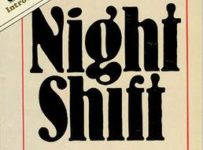Today I gave a presentation on Harry Potter and the Philosopher’s Stone. I present it to you below, with the ad-libs (for which many will hate me) presented in bold. The ensuing discussion actually led to something pretty interesting that I might be inspired to write later, about adaptation.
Discuss: The Magic of Film Undoes the Magic of Reading; or The Magic of Film Outdoes the Magic of Reading.
If you’ve ever watched Futurama, you might know that there’s an episode that ends with the narrator claiming “You just watched it! You can’t unwatch it!” I didn’t immediately think of this when I read the question, because the “magic of film” is a bit of a weasel proposition. It’s not a strict “versus” question; it seems to be one of ruination. Do we have to go to such extremes? After all, only a Sith deals in absolutes.
Does Harry Potter and the Philosopher’s Stone, as a movie, bring ruination upon Harry Potter and the Philosopher’s Stone as a book? Well, no, not really. However, there is a degree of cross-pollination inherent … while you can’t unwatch or unread something, you can have your memory of them overwritten. For some, the greatest and most terrible aspect of seeing a beloved book turned into a film is the seeing … your bushy haired Hermione replaced by the equally bushy haired Emma Watson; Hogwarts, that most reverend of castles, replaced by … a castle.
This is the sort of question that you can’t really argue with any real degree of objectivity, so I’ll tell you my own personal Potter story. I read the books a short while after Prisoner of Azkaban came out. When Philosopher’s Stone was released on the screens, I went and saw it, and I loved it. I loved how it constructed Snape as a villain, and I believed this construction. So I reread the books from the top. Then I watched the movie again, and I thought “what the hell is this crap?”
For me, the problem of the Philosopher’s Stone movie is not the visualisation, because most people would probably agree that the film’s physical realisation of its characters and places is spot on; I’m not as harsh a judge as my sixteen year old self, but I distinctly think that the movie lacks magic. (Please keep in mind that I’m sticking to the first text here).
I firmly believe that it is the structure of Harry Potter and the Philosopher’s Stone is what endows it with magic. While it’s a short book, it’s filled with details that are steamrolled out of the way of the filmic adaptation for the monster known as plot. This book is, after its quite awkward reading Harry and the Dursleys chapters … written completely unlike anything else in any of the books … structured around a school year. Through her description of little things, Rowling builds a world more effectively than Christopher Columbus’ camera ever does. A fine example of this is when Winter hits Hogwarts: Fred and George Weasley get in trouble for bewitching snowballs to bounce off the back of Quirrell’s turban. In fact, one could say that the Weasley twins embody the very spirit of Hogwarts, revealing new and fun things about all of the magic that is happening at Hogwarts. You can compare this to their participation in the film in only a few scenes, with only a couple of lines of dialogue afforded to each of them … the cinematic Hogwarts has presence, but it lacks character beyond the Escher-like rotating staircases.
While Harry Potter is all about Action! Exposition! Drama! it’s also got a definite streak of humour and whimsy as one of the central ingredients. Hence, in the books, we are given the benefit of silly little asides, and information on the content of classes … totally separate to the plot, because Rowling is world building and conveniently indicating the passage of time as well. The movie has to swoop from one piece of exposition to the next, and its abridged nature means that key lines in the overall Potterverse (Hagrid’s “He didn’t have enough human in him to die” principal amongst them) are demolished. In fact, for a narrative so simple, a lot of the concatenation doesn’t make any sense at all. The Norbert subplot, which in the book is a way of marking time because you can’t have something exciting and conspiratorial happening every day, but you can’t exactly skip ahead by months, is reduced to a special effects plot. Illegality of dragons? Gone. 150 points taken from Gryffindor from being out of bed late at night … when the children have a freaking invisibility cloak at their disposal? Nonsense!
The one saving grace of these changes … which also serve to make Malfoy snivelly and lame rather than a conniving little twerp … is the relationship established between Filch and Hagrid.
So, obviously, cinema is a visual medium. And we have to make sacrifices for this. The deliciously condescending Richard Harris doesn’t get to serve precisely so much of Dumbledore’s “walk on exposition” role, because Harry gets to see Quirrell crumbling before his eyes and … perhaps the film’s biggest disappointment … the manifestation of Voldemort. We’re talking about this movie, so we’re not considering Ralph Fienne’s star turn … we’re talking about Ian Hart’s face. This is lame stuff, people. There may be some Raiders of the Lost Ark level things going on, but here we’ve got what, in retrospect for even the film makers, was a poor choice. The revelation of Voldemort as just a face … a human face, no red eyes, just talk of power … he loses any majesty or terror that he may have instilled beyond the novelty value of being on the back of someone’s head.
Harry Potter and the Philosopher’s Stone is eminently readable. As a film, it’s somehow slavishly devoted to its source material while deviating too much and omitting too much … we don’t even know that James saved Snape’s life! … to be a truly satisfactory piece of work. We spoke last week of the mundane, and that’s what this movie largely is. We’re given no spirit of wonder, and no sense of place. Sets are not the same as prose, and special effects are no substitute for giving Neville a genuine sense of heroism.
Christopher Columbus’ foul hand weaved an horrid curse on the Harry Potter franchise but, I’m happy to say, it’s picked up since his departure. Oh God, I can’t believe I actually wrote that for my conclusion. Sorry about that, everyone.


